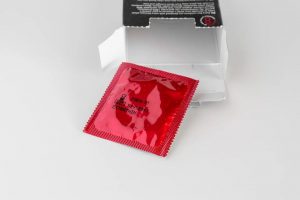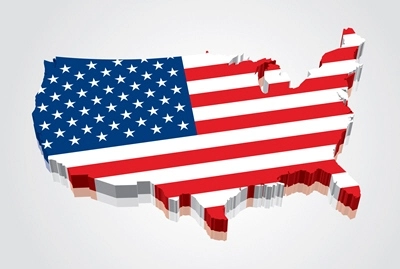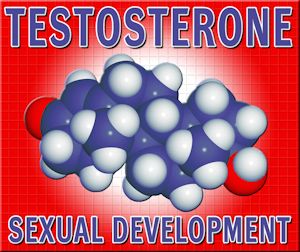 Big testicles have long been associated with higher masculinity and a proclivity for risk-taking. If you're a guy, it's almost inevitable that your friends will ask you if you Have the Balls to do any number of things. But how does testicle size actually relate to Testosterone production? Testosterone is the primary hormone associated with manliness, libido, and virility, and most of it is made by your testicles (though small amounts are produced in the adrenal glands). It stands to reason that larger balls equal more Testosterone, but does the science bear that common sense out?
Big testicles have long been associated with higher masculinity and a proclivity for risk-taking. If you're a guy, it's almost inevitable that your friends will ask you if you Have the Balls to do any number of things. But how does testicle size actually relate to Testosterone production? Testosterone is the primary hormone associated with manliness, libido, and virility, and most of it is made by your testicles (though small amounts are produced in the adrenal glands). It stands to reason that larger balls equal more Testosterone, but does the science bear that common sense out?
In the world of professional wrestling, Vince McMahon is practically celebrated for his massive cajones, so big that commentators routinely quip about how it affects his walk and gait, giving him a signature strut. While wrestling is a soap opera for men, the societal assumption that big testicles promote manliness is real. The irony, of course, is that steroids and Testosterone actually lead to smaller testicles.
Studies Explore the Impact of Testicle Size on Testosterone Production
Luckily for us, there's a lot of scientific research out there about how our testicles work. Testosterone is intrinsically involved in development, fertility, psychology, and more. Testosterone helps maintain strong muscles, dense bones, and perhaps even an assertive character.
Research indicates that the size of your testicles likely has at least a small relationship to the amount of Testosterone that you can produce—though some of this research was conducted on animals. For example, among male sheep, the testicle circumference had a predictive relationship to not only Testosterone but aggression and sperm count. Bigger balls led to higher output in all three areas. Based on this study, the rams with the heftiest testicles were the ones to watch out for!
Scientists found a significant difference in Testosterone output dependent on the size of the ram's testicles. Goats in the bottom 10% in scrotum size produced half as much Testosterone as the goats in the top 10% in size.
Testicle Comparisons Among Primates and Humans
Researchers have also investigated the connection between the relative size of a primate's testicles and their sexual activity and fertility. Primates like macaques and chimps that are particularly promiscuous have larger testicles for their size. On the other hand, Gorillas have smaller testicles because they tend to rove in packs led by a dominant male with significantly less sleeping around. Between species, testicle size has a lot to do with sexual competition. In that field, humans have fairly average-sized testicles for their body mass. Smaller than the highly promiscuous primates but larger than species like gorillas.
While it may be useful to investigate the effects of testicle size in other species, it's important to recognize that this information doesn't necessarily cross over to humans. Every species will have its own quirks when it comes to how Testosterone influences development and function. Still, it provides evidence that may aid us in self-discovery. There's at least some correlation between the size of your testicles and your reproductive fertility. Science has shown that fertile guys have bigger testicles (on average) than men diagnosed as infertile.
What Does It Mean If I Have Big Testicles?
For one, it means that you aren't taking steroids. Chronic use of steroids can reduce sperm count, impede natural testosterone production, and lead to Testicular atrophy. Steroids and Prescription Testosterone both lead to feedback mechanisms that suppress normal production of sperm and Testosterone. There are ways around that, like Clomiphene Citrate, but it's otherwise inevitable during the duration of treatment. This is one reason why Testosterone Therapy regimens often recommend breaks from treatment every cycle to help sustain the natural health of the testes.
Though the size of Testicles from species to species tells a big story, the fluctuation from human to human may not be so strong, at least when it comes to Testosterone Production. Testicle size is most strongly associated with sperm count, but not necessarily Testosterone. Only about 1/5th of the volume of your testes is in the business of making Testosterone, whereas 4/5th of the testes makes sperm. While there is probably a small correlation between the size of your testicles and Testosterone Production, it's likely to be minor.
Contact Us Today For A Free Consultation

- Cano's spokeswoman was client of Biogenesis [Last Updated On: January 25th, 2024] [Originally Added On: May 4th, 2013]
- Documents: Cano associate was client of clinic [Last Updated On: January 25th, 2024] [Originally Added On: May 4th, 2013]
- Sources: Cano associate was Biogenesis client [Last Updated On: January 25th, 2024] [Originally Added On: May 4th, 2013]
- Early Stage Testicular Cancer - Surveillance Is Best Follow-Up Strategy [Last Updated On: January 25th, 2024] [Originally Added On: May 18th, 2013]
- 2013 Endocrine Function Testing Market in Europe: Hospitals, Commercial Labs, Physician Offices, Ambulatory Care Centers [Last Updated On: January 25th, 2024] [Originally Added On: June 14th, 2013]
- Europe Endocrine Function Testing Market Studied by VPG in Cutting-Edge Report Now Available at MarketPublishers.com [Last Updated On: January 25th, 2024] [Originally Added On: June 18th, 2013]
- A More 'Natural' Version Of IVF Proves A Success [Last Updated On: January 25th, 2024] [Originally Added On: June 19th, 2013]
- Weight Loss Cure with Metabolic Cookbook - Video [Last Updated On: January 25th, 2024] [Originally Added On: July 12th, 2013]
- Weight Loss Drops - Are They A Scam? - Video [Last Updated On: January 25th, 2024] [Originally Added On: July 12th, 2013]
- Abbott Features Solutions to Help Labs Prepare for the Evolving Healthcare Landscape at the American Association for ... [Last Updated On: January 25th, 2024] [Originally Added On: July 30th, 2013]
- How Testicular Cancer Is Diagnosed | Testicular Cancer - Video [Last Updated On: January 25th, 2024] [Originally Added On: August 11th, 2013]
- 2014 Opportunities in the US Clinical Chemistry and Immunodiagnostics Markets [Last Updated On: January 25th, 2024] [Originally Added On: September 27th, 2013]
- Serie A - Doping ban overturned on cancer sufferer Acerbi [Last Updated On: January 25th, 2024] [Originally Added On: January 8th, 2014]
- Health Highlights: Jan. 8, 2014 [Last Updated On: January 25th, 2024] [Originally Added On: January 8th, 2014]
- Testosterone Replacement Therapy [Last Updated On: December 9th, 2023] [Originally Added On: January 19th, 2014]
- Paid Hepatitis C Clinical Trial Now Enrolling at Avail Clinical Research near Orlando, Florida; Accepting M/F Patients ... [Last Updated On: January 25th, 2024] [Originally Added On: January 22nd, 2014]
- Luteal Phase: The Uterine Lining Phase - Video [Last Updated On: January 25th, 2024] [Originally Added On: April 10th, 2014]
- Doping case against Acerbi dismissed [Last Updated On: January 25th, 2024] [Originally Added On: April 15th, 2014]
- Drugs that Cause Gynecomastia [Last Updated On: January 25th, 2024] [Originally Added On: May 14th, 2014]
- Illegal Online Meds Targeted in Worldwide Crackdown, FDA Says [Last Updated On: January 25th, 2024] [Originally Added On: May 24th, 2014]
- Biogenesis' Bosch surrenders in PEDs case [Last Updated On: January 25th, 2024] [Originally Added On: August 5th, 2014]
- Duchess of Cambridge 'hugely disappointed' after being forced to pull out of yet another engagement due to morning ... [Last Updated On: January 25th, 2024] [Originally Added On: October 1st, 2014]
- Kate, Duchess of Cambridge dazzles in baby blue gown at the Natural History Museum [Last Updated On: January 25th, 2024] [Originally Added On: October 22nd, 2014]
- 'They're poisoning us'. How religious leaders are hindering vaccination programmes across the world [Last Updated On: January 25th, 2024] [Originally Added On: November 14th, 2014]
- Poor prognosis germ-cell tumours are only cured in about half of patients. We aimed to assess whether treatment ... [Last Updated On: January 25th, 2024] [Originally Added On: November 23rd, 2014]
- Nursing a Grudge [Last Updated On: January 25th, 2024] [Originally Added On: January 22nd, 2015]
- Hormone Levels in Men - Testosterone Injections [Last Updated On: November 30th, 2021] [Originally Added On: September 9th, 2016]
- Human Growth Hormone May Actually IMPROVE Quadricep Strength After Reconstruction of Torn ACL [Last Updated On: September 23rd, 2024] [Originally Added On: June 22nd, 2020]
- Six Ways to Feel Good and Balance Your Hormones at the Same Time! [Last Updated On: January 25th, 2024] [Originally Added On: September 24th, 2020]
- Your Birthplace Heavily Influences Your Future Testosterone Levels [Last Updated On: August 19th, 2024] [Originally Added On: March 6th, 2021]
- Both High and Low Levels of Testosterone Correlate With Cardiovascular Issues in Men [Last Updated On: September 27th, 2024] [Originally Added On: April 14th, 2021]
- Breaking News: Testosterone May Be the Answer to Autoimmune Diseases [Last Updated On: August 24th, 2024] [Originally Added On: May 14th, 2021]
- Non-Stop Cravings for Protein? Blame it on Your Gut Hormones! [Last Updated On: September 13th, 2024] [Originally Added On: May 21st, 2021]
- Testosterone Therapy Could Help Quell Your Asthma Attacks [Last Updated On: September 12th, 2024] [Originally Added On: June 20th, 2021]
- BPA Here, BPA There, What’s the Reason for the Scare? [Last Updated On: September 16th, 2024] [Originally Added On: June 29th, 2021]
- Low Testosterone Linked to Depression and Suicidal Ideation [Last Updated On: August 25th, 2024] [Originally Added On: July 5th, 2021]
- It’s True: Men Today Have Less Testosterone Compared to Men a Generation Ago [Last Updated On: September 19th, 2024] [Originally Added On: July 13th, 2021]
- Losing Weight with Baratric Surgery Reverses Low Testosterone [Last Updated On: October 2nd, 2024] [Originally Added On: February 8th, 2022]
- Fact or Myth: Have Testosterone Levels Really Dropped by 50% Just in the Past Two Decades? [Last Updated On: August 14th, 2024] [Originally Added On: June 4th, 2022]
- Another Analysis Shows No Cardiovascular Risks With Testosterone Therapy [Last Updated On: October 6th, 2024] [Originally Added On: November 27th, 2022]
Word Count: 709




















